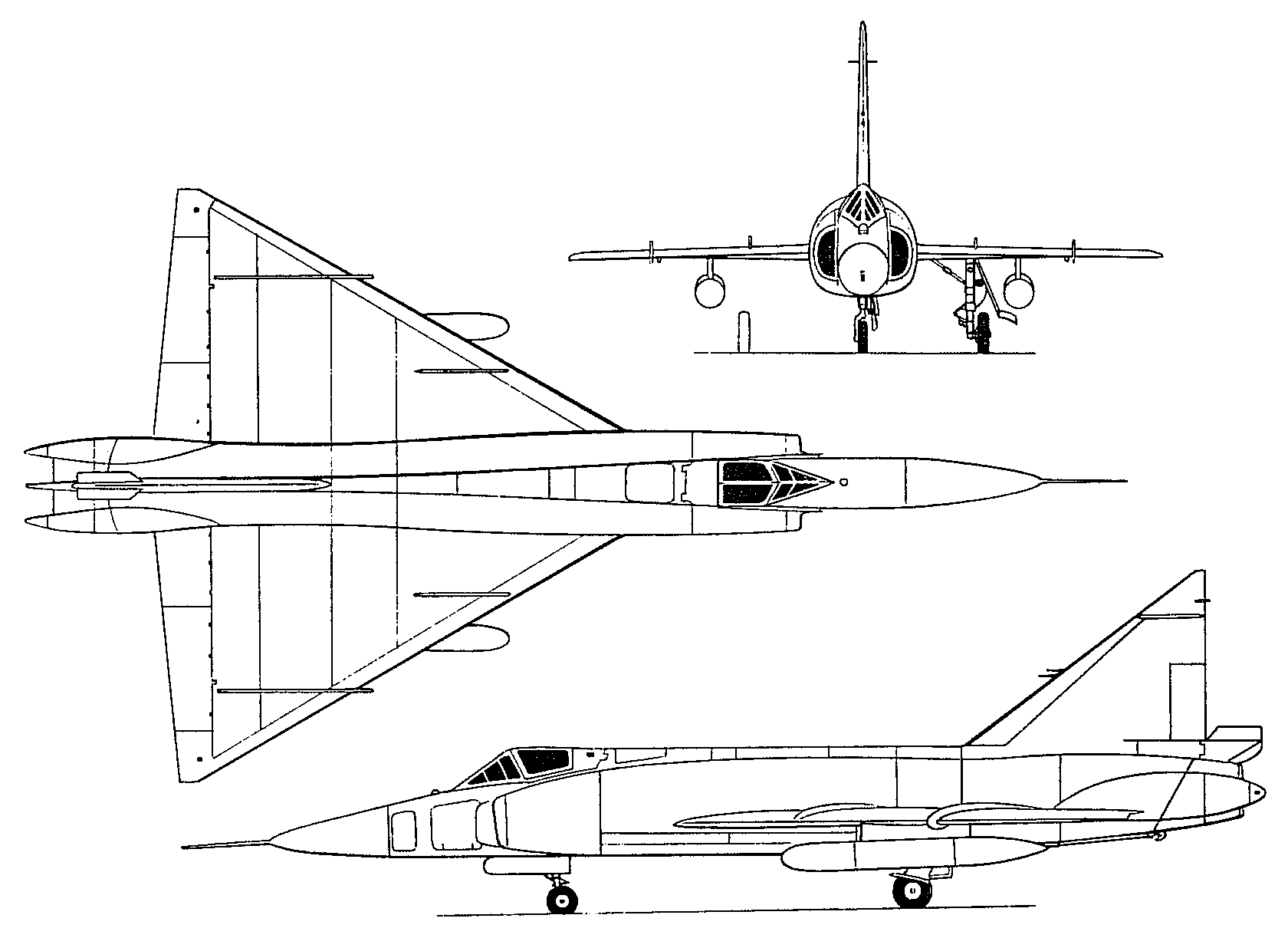The F-102 Delta Dagger was used as an interceptor, designed and built to intercept invading Soviet bombers during the Cold War.
First manufactured in 1956, the F-102 was the first supersonic, all-weather jet interceptor. This aircraft served as an interim weapons system during the Vietnam War until the F-106A entered the United States Air Force’s (USAF) inventory. Delta Daggers were outfitted with an onboard computer and three internal weapons bays that held two Falcon missiles and twenty-four unguided rockets. The F-102 was also the first aircraft designed with “area ruling,” which is the Coke bottle-like shape of the fuselage that helped to reduce trans-sonic drag. In 1962, the USAF sent F-102As to South Vietnam where they flew air defense against the North Vietnamese.

Serial Number: 57-0833
Manufacturer: General Dynamics/Convair
Crew: One
Engines: One Pratt & Whitney J57-P-25 turbojet; 17,200 pounds thrust
Wingspan: 38 feet 1 1/2 inches
Length: 68 feet 4 1/2 inches
Height: 21 feet 2 1/2 inches
Weight: 19,350 pounds (empty); 31,500 pounds (maximum)
Speed: 825 mph at 35,000 feet
Range: 1,350 miles
Service Ceiling: 53,400 feet
Armament: Six air-to-air guided missiles; twenty-four 2.75-inch unguided rockets
Cost: $1,184,000
In 1956, Hill Air Force Base was designated as the Western Zone Weapons System Storage Site for the F-102 aircraft. The following year, the Ogden Air Materiel Area started performing maintenance and modernization for the F-102 aircraft program. In 1962, maintenance on the last F-102 was completed after nearly 772 of these aircraft had gone through Hill Air Force Base. The F-102 on display was manufactured in 1958 and served at several bases. In 1987, after being restored, it was put on display at Hill Aerospace Museum.
The F-102 Delta Dagger was used as an interceptor, designed and built to intercept invading Soviet bombers during the Cold War.
The Delta Dagger saw limited use in Vietnam as a bomber escort and ground-attack aircraft. Unfortunately, while performing an escort mission, an F-102 was hit by an air-to-air missile and destroyed. A total of 14 Delta Daggers would be lost during the conflict
As initially designed, the F-102 was unable to travel at supersonic speeds. However, after an extensive redesign, the newly designed F-102A was able to reach Mach 1.22.
In the mid-1960s, the majority of the F-102 fleet was transferred to the Air National Guard, replaced by the F-101 Voodoo and F-4 Phantom IIs.